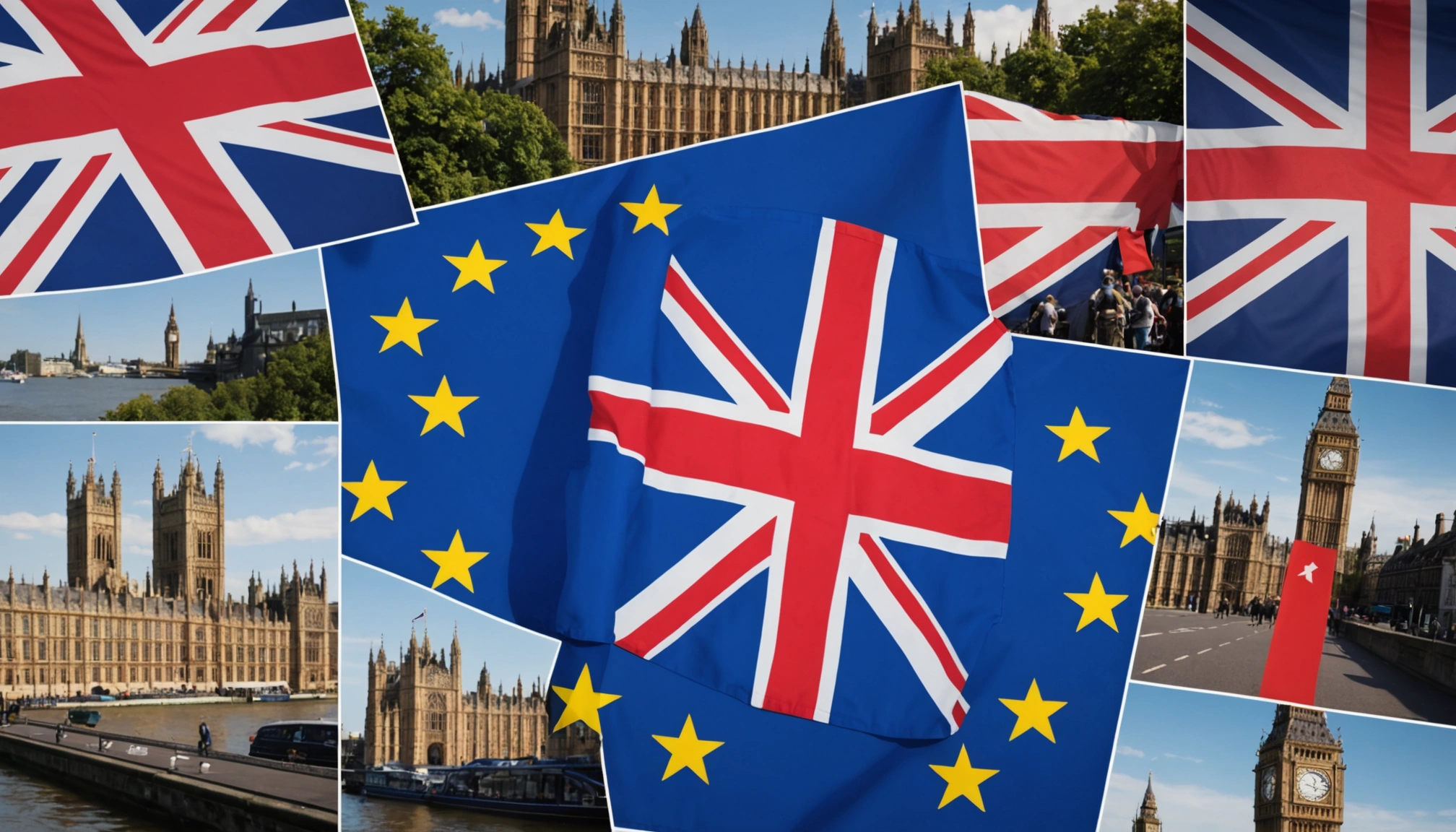Brexit's Lingering Shadow: How Tourism Continues to Be Affected

The United Kingdom's decision to leave the European Union, commonly known as Brexit, continues to cast a long shadow over its tourism industry. While the immediate shockwaves of the 2016 referendum have subsided, the long-term consequences are still unfolding, impacting visitor numbers, spending habits, and the very fabric of the UK's hospitality sector. From new travel restrictions to labor shortages and shifting economic landscapes, Brexit's influence on tourism is a complex and evolving story.
The Initial Downturn and Lingering Uncertainty
In the immediate aftermath of the Brexit vote, projections for tourism revenue growth took a hit. By 2022, the UK had missed out on an estimated £3 billion in tourism-related income due to decreased visitor spending, according to Visit Britain. The uncertainty surrounding the UK's future relationship with the EU created a "chilling effect" on perceptions of the country as a stable and welcoming destination. Potential tourists, particularly Europeans who had previously enjoyed seamless travel arrangements, began to re-evaluate the UK as a travel option.
A study conducted after the Brexit vote revealed a significant drop in the likelihood of tourists from key markets like Germany, France, and Italy to visit the UK, falling from nearly 90% to around 70%. Around 60% of respondents identified political uncertainty as a deterrent, while approximately 45% cited potential increases in post-Brexit travel costs and accommodation. This shift impacted not only logistical considerations but also the country's image as a stable and welcoming destination, risking cascading effects on tourism-related revenue and employment.
New Barriers to Entry: Travel Restrictions and Authorizations
One of the most tangible impacts of Brexit on tourism is the introduction of new travel restrictions. The British government's decision to ban over 200 million European Union citizens from using their national identity cards to enter the UK has been particularly detrimental. This move, according to Joss Croft, chief executive of UKInbound, has had a "catastrophic impact on the international student travel industry."
Furthermore, starting in April 2025, the UK will require all foreign visitors, except Irish citizens, to obtain an Electronic Travel Authorisation (ETA) in advance. While the initial fee was £10, it is set to rise to £16. VisitBritain predicts that this requirement will likely have a negative impact on European tourism, especially in markets where perceptions of welcome are already lower. These new regulations add layers of bureaucracy and cost to travel, potentially deterring spontaneous visits and short trips.
Economic Shifts and Competitive Disadvantages
Brexit has also triggered economic shifts that have affected the UK's competitiveness in the global tourism market. The pound's devaluation against the euro and dollar since 2016, partly attributed to Brexit, has made the UK a more attractive destination for some international tourists. However, this benefit is offset by rising tourism prices within the UK, which have increased at a faster rate than overall inflation.
VisitBritain has expressed concerns that the UK is likely to lose competitive share both within Europe and globally. If inbound tourism to the UK were to grow at the same pace as forecasts indicate for Western Europe, the value of inbound spending would be worth an additional £4.4 billion per year by 2030 to the UK economy. The organization also notes that business visits are lagging behind pre-pandemic levels, with the UK having lost approximately 1.5 million business visits since before COVID-19.
Labor Shortages and the Hospitality Sector
The UK's hospitality sector, heavily reliant on EU workers, has been particularly vulnerable to the labor shortages exacerbated by Brexit. The end of free movement has made it more challenging for businesses to recruit skilled workers, with many reporting difficulties in finding suitable replacements for EU workers who have left since the 2016 referendum.
Since 2019, the implementation of new immigration policies combined with the Coronavirus pandemic has resulted in approximately 120,000 EU workers leaving the hospitality sector. This exodus has contributed to a significant skills gap, making it challenging for businesses to fill vacancies and maintain operations. The increased minimum salary threshold for sponsored Skilled Workers, rising from £26,200 to £38,700 in April 2024, has further restricted the talent pool. The hospitality industry has the highest employee turnover rate amongst all sectors, with an average turnover rate of 52%.
Adapting to the New Reality
Despite the challenges, the UK tourism industry is adapting to the new reality of Brexit. Destination management organizations (DMOs) are emphasizing short-term gains and flexibility, addressing concerns about travel regulations, and expanding their online operations to communicate more directly with potential tourists. Marketers are diversifying their target markets beyond the EU and re-emphasizing the UK's traditional strengths, including its rich history and natural beauty.
The government has set an ambition for visitor numbers to the UK to reach 50 million by 2030 and plans to publish a tourism growth strategy later in 2025. This includes establishing a new Visitor Economy Advisory Council to work with the industry on tourism and design and deliver a new growth strategy. Furthermore, businesses have started to invest in training and developing local talent, which could lead to a more skilled and sustainable workforce in the long term.
Conclusion
Brexit has undeniably introduced complexities to the UK's tourism industry. From policy changes affecting traveler convenience to economic factors influencing spending and labor shortages impacting service quality, the challenges are multifaceted. To navigate these hurdles, a comprehensive approach is essential. This includes policy adjustments to facilitate easier entry for tourists, competitive pricing strategies, and targeted marketing campaigns to attract visitors from diverse markets. While the long-term effects of Brexit on tourism are still unfolding, the industry's ability to adapt and innovate will be crucial in sustaining and growing its contribution to the UK economy.
Related Articles

Berlinale Navigates Future with Tricia Tuttle at Helm, Introduces New Code of Conduct
Berlin, Germany – Tricia Tuttle will remain at the helm of the Berlin International Film Festival (Berlinale), a decision confirmed by Wolfram Weimer, chair of the festival's supervisory committee, the KBB, following a period of intense scrutiny and speculation. The announcement, made on Wednesday, March 4, 2026, also coincided with the introduction of a new advisory council and a comprehensive code of conduct for the renowned festival

Regional Tensions Erupt in Dubai, Challenging Influencers' Curated Realities
DUBAI, UAE – The recent barrage of Iranian missile and drone strikes targeting Dubai has starkly disrupted the opulent, meticulously curated world of the city's vast influencer community, exposing the fragile underpinnings of a lifestyle often portrayed as impervious to geopolitical turmoil. The attacks, which caused damage to key infrastructure including the airport and several high-profile hotels, have not only shattered Dubai's image as an unassailable sanctuary but also forced its digital elite to grapple with the complex intersection of global conflict, brand obligations, and the nuanced boundaries of public expression in a crisis. ## The Shattered Mirage of Stability For years, Dubai has cultivated an image as a beacon of stability and luxury in a volatile region, attracting a global cohort of entrepreneurs, millionaires, and, notably, a thriving community of social media influencers

The Journey Towards Conscience: Is Responsible Travel an Achievable Ideal?
The allure of distant lands and novel experiences continues to captivate humanity, yet the escalating impacts of global tourism present a profound ethical dilemma. As wanderlust drives billions across continents, a critical question emerges: In an era of climate crisis and overtourism, can travel truly be responsible? The answer, experts suggest, is a complex tapestry woven with challenges and burgeoning opportunities, demanding a collective shift in mindset and practice from both industry and individual travelers. ### The Promise and Peril of Global Exploration Responsible travel, broadly defined, seeks to minimize the negative environmental and socio-cultural impacts of tourism while maximizing its positive contributions to local economies and communities